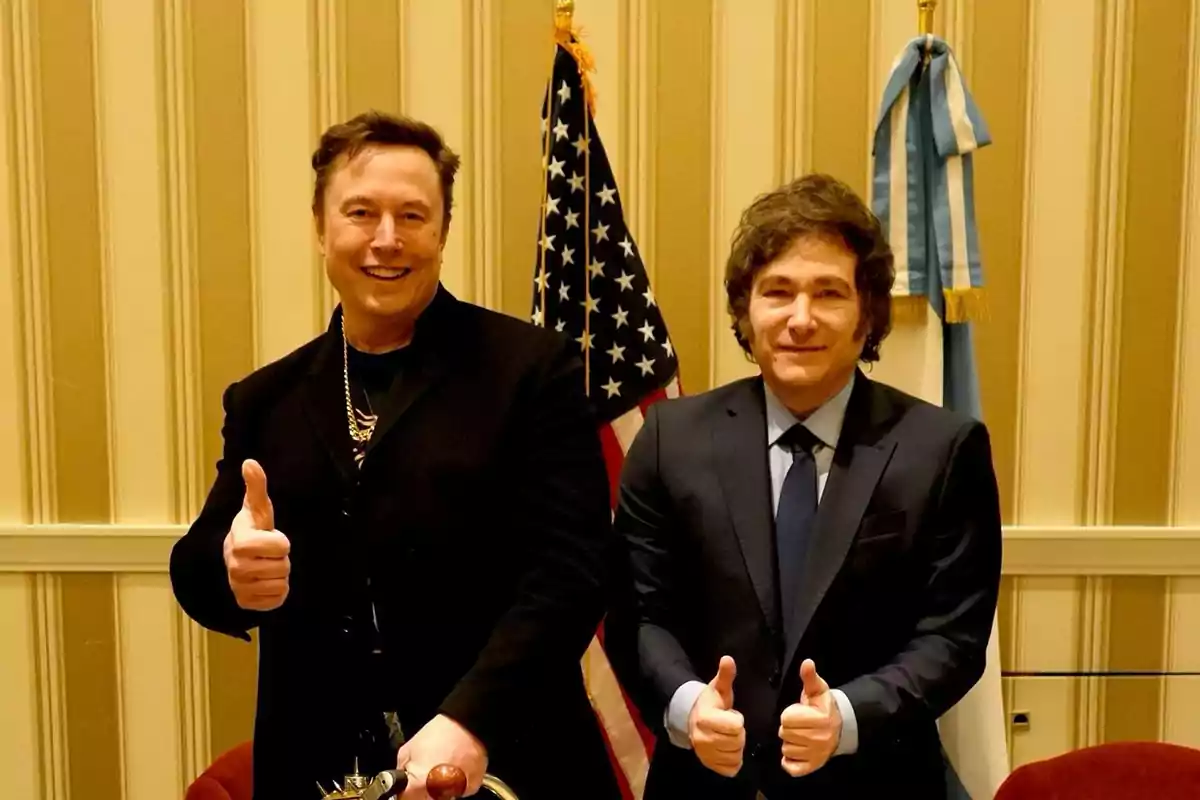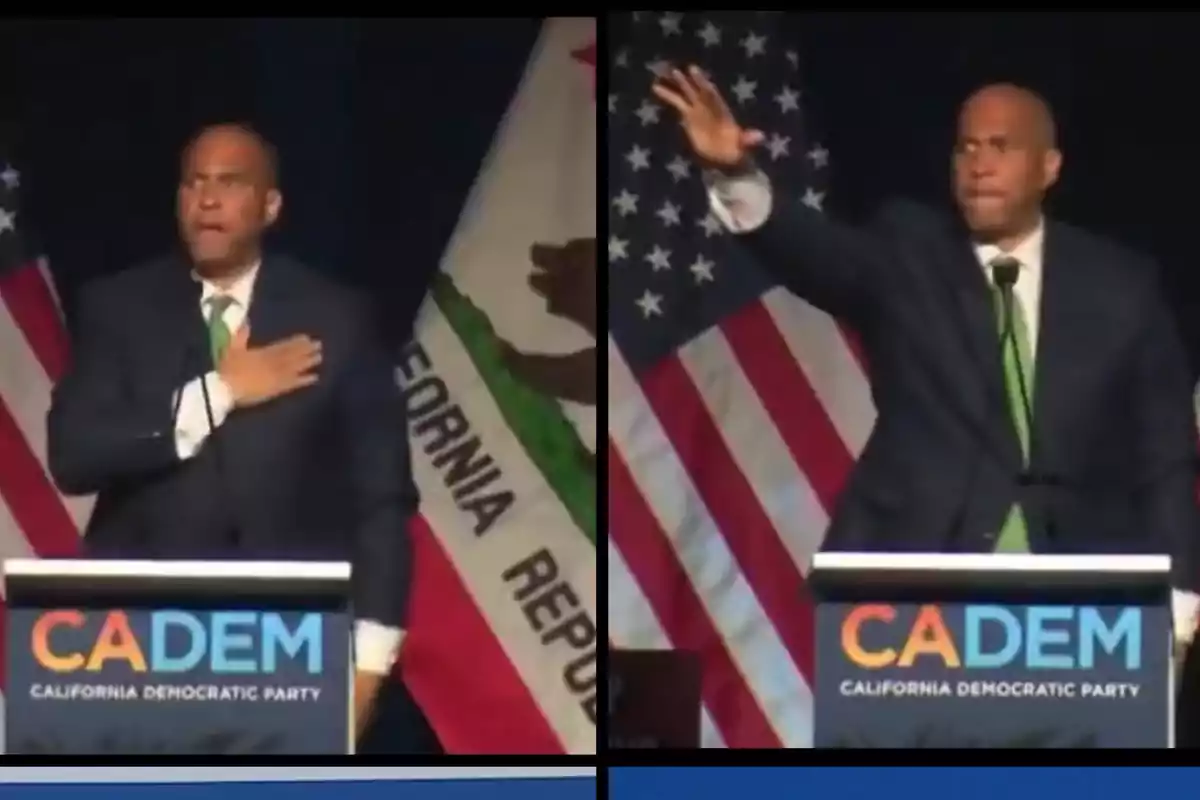
Elon Musk repeated Javier Milei's phrase against bribed media outlets and journalists
The American businessman strongly criticized the media for their double standards
After an incident at a political event of the Democratic Party, successful entrepreneur Elon Musk posted a phrase on his X account, a phrase very similar to the one used by the president of Argentina, Javier Milei.
“You don’t hate the legacy media enough” ("We don’t hate the legacy media enough"), wrote Musk, quoting some photos in which Democratic Senator Cory Booker is seen making a gesture very similar to the Nazi salute.
Musk's post was neither casual nor isolated. Months earlier, the businessman was accused by U.S. media of supposedly being a "Nazi and antisemite" after making a gesture that was taken out of context and presented as a Nazi gesture, even though he himself firmly denied that intention.
The gesture actually consisted of touching his chest with his hand, then extending it toward the audience, as a way of expressing gratitude for the support received during the U.S. presidential campaign.

The international press, mainly left-leaning, was relentless in its headlines. However, in the face of the scene starring Booker, the media silence was total.
This double standard motivated criticism from the owner of X, who reiterated on multiple occasions that the legacy media is politicized and lies without consequences. The phrase "you don’t hate the legacy media enough" adds to a long list of messages in which Musk denounces collusion between a large part of journalism and the left-wing political power.

Javier Milei's phrase
Elon Musk's phrase turned out to be very similar to that of Argentine president Javier Milei. The president often points out that "people don’t hate journalists enough," due to the false news, media operations, and distortions carried out by a significant part of journalism, with the aim of attacking the Government through the media.
A large part of the Argentine media continues to operate with corporate logic and responds to ideological and partisan interests, contrary to the original role of journalism.
Both leaders share a critical view of the role of legacy media. They agree that these actors have lost objectivity, functioning in many cases as propaganda machines or guardians of a status quo that resists change.
More posts: